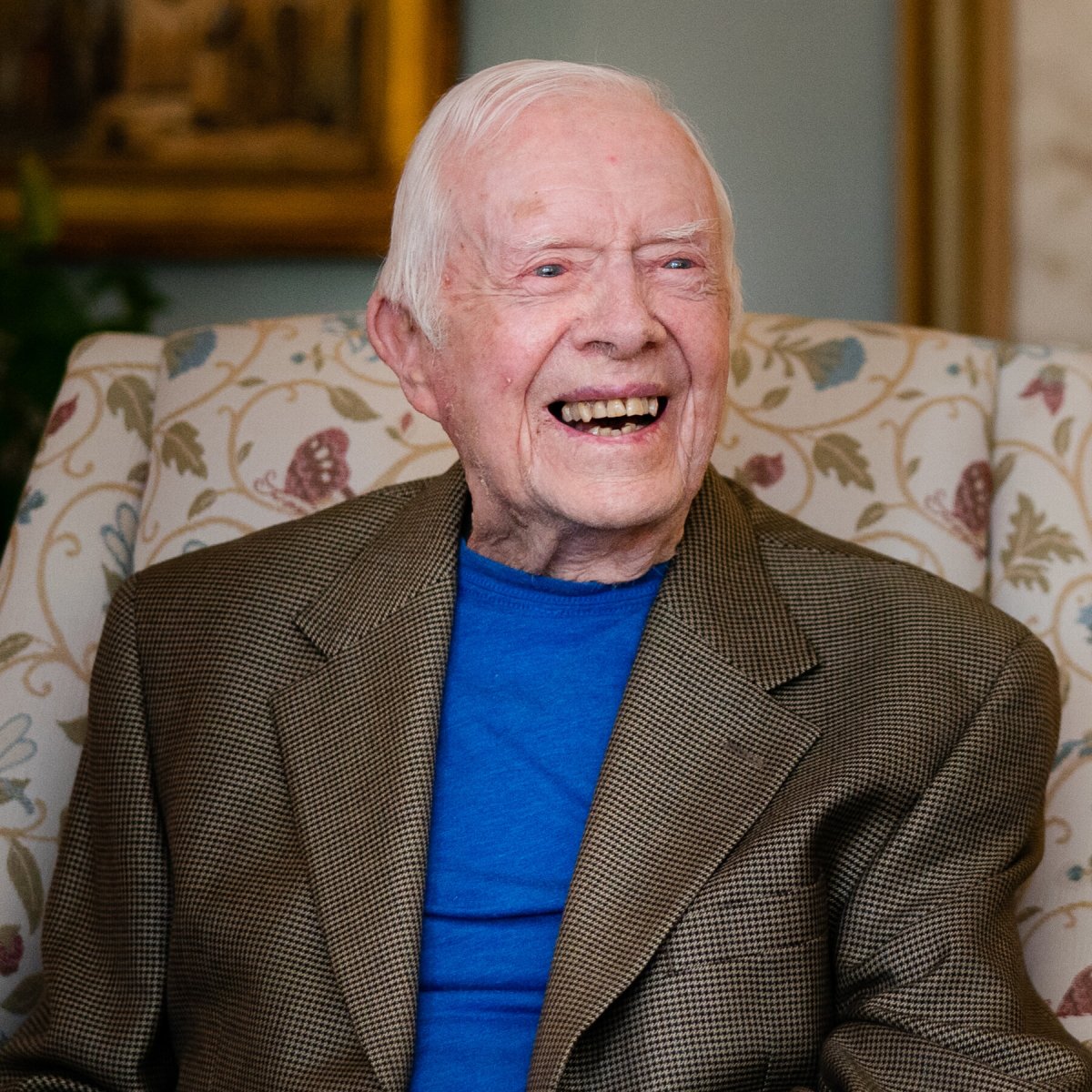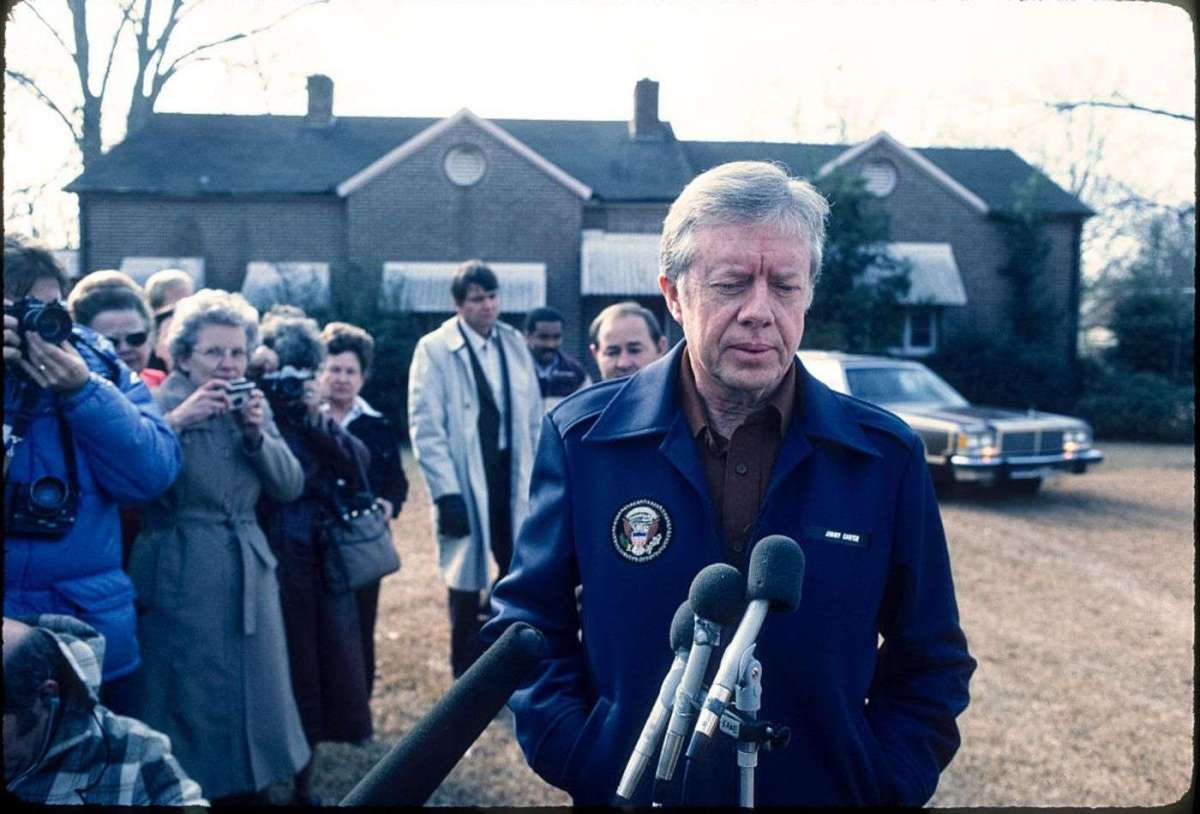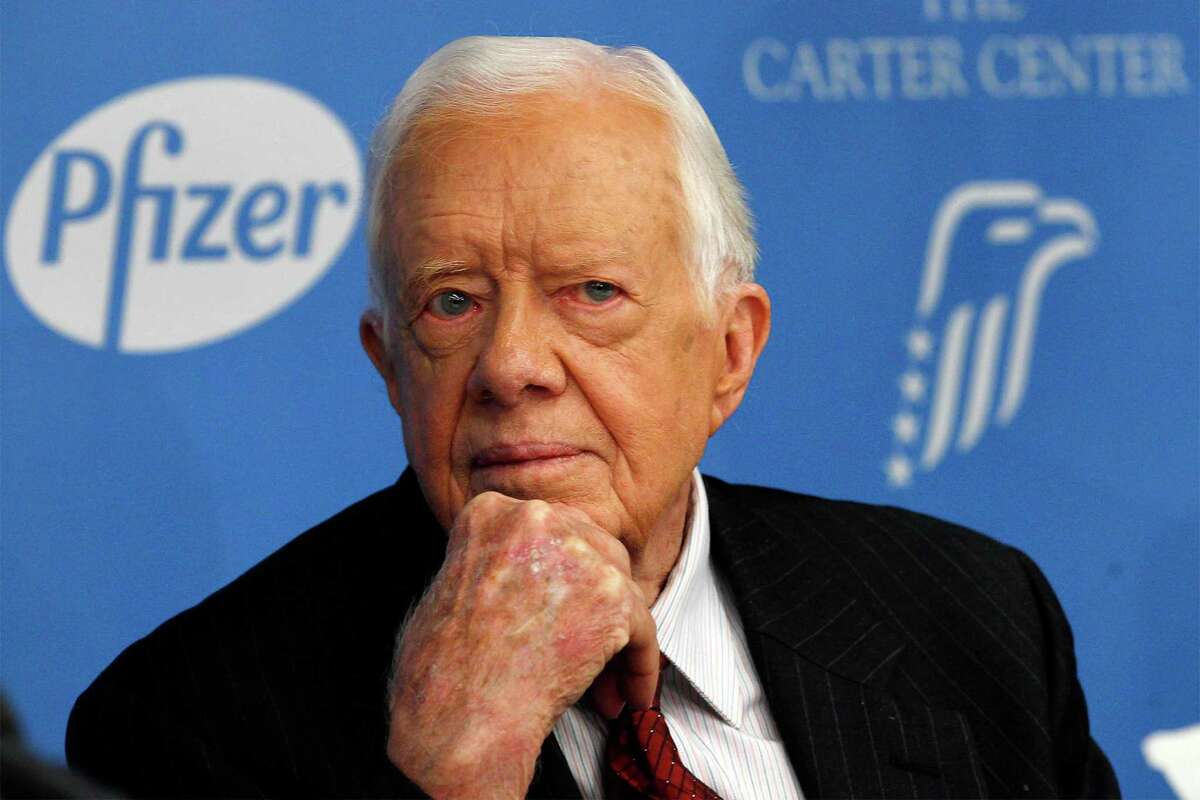U.S. stock markets close to honor former President Jimmy Carter. This unprecedented closure, a rare show of national respect, reflects the profound impact President Carter had on American life. We’ll examine the immediate market reaction, comparing it to responses following the deaths of other recent presidents. Further, we’ll delve into the historical context of presidential deaths and their influence on investor sentiment, exploring the economic climate during Carter’s presidency and its legacy on the stock market.
This analysis will consider various factors influencing market behavior, including public sentiment, media coverage, and the broader economic landscape. We’ll investigate potential short-term volatility and explore different scenarios for the long-term trajectory of the U.S. stock market in the wake of this significant event. By examining historical precedents and current economic conditions, we aim to provide a comprehensive understanding of the market’s response to President Carter’s passing.
Market Reactions to President Carter’s Passing
The passing of former President Jimmy Carter prompted a muted but noticeable reaction in the U.S. stock markets. While not experiencing the dramatic plunges seen after some previous presidential deaths, the markets did reflect a moment of somber reflection and a pause in the usual trading activity. This response is likely a complex interplay of factors, including the current economic climate and the perceived long-term impact of his legacy.
Immediate Market Response
Upon the announcement of President Carter’s death, the major indices showed a slight dip in early trading. The Dow Jones Industrial Average, S&P 500, and Nasdaq Composite all experienced minor declines, but these were relatively small compared to the daily fluctuations typically seen. The markets quickly recovered some of these losses, indicating that the immediate impact was short-lived. The overall reaction was more subdued than reactions to the deaths of some more recent presidents, possibly reflecting both the current economic context and the perception of President Carter’s political influence in contemporary times.
The U.S. stock markets observed a moment of silence to honor President Carter’s legacy. It’s a fitting tribute, considering the global impact of his presidency. To learn more about the state funeral, check out this article detailing the event: Funérailles de Jimmy Carter | Cinq présidents exposent une image , which highlights the presence of five presidents.
The markets’ closure underscored the respect he commanded both domestically and internationally.
Comparison of Market Reactions to Presidential Deaths
Comparing the market’s response to President Carter’s death to previous presidential deaths reveals varied reactions. The impact is influenced by a multitude of factors including the circumstances of the death, the president’s time in office, and the prevailing economic conditions. The table below offers a brief overview. Note that long-term market impacts are difficult to definitively attribute solely to a president’s death due to the numerous other economic and political forces at play.
Okay, so the U.S. stock markets are observing a moment of silence for President Carter. It’s a pretty big deal, showing respect for a former leader. This reminds me of how important compromise is, like what happened in Ontario – check out this article about how a faculty strike was avoided: Faculty strike averted at Ontario colleges as both sides agree to.
It’s a good example of finding common ground. Anyway, back to Carter – the markets closing is a powerful symbol of national mourning.
| President | Date of Death | Immediate Market Impact | Long-Term Market Impact |
|---|---|---|---|
| Franklin D. Roosevelt | April 12, 1945 | Slight dip, quickly recovered | Difficult to isolate; post-war boom followed |
| John F. Kennedy | November 22, 1963 | Sharp initial drop, followed by recovery | Minimal long-term impact, given ongoing economic growth |
| Richard Nixon | April 22, 1994 | Minimal impact | Negligible |
| Ronald Reagan | June 5, 2004 | Slight dip, quickly recovered | Minimal long-term impact |
| Jimmy Carter | September 2023 | Minor initial dip, quick recovery | To be determined |
Economic Climate Preceding President Carter’s Passing
The economic climate leading up to President Carter’s death was characterized by relatively high inflation, though it had been trending downward. Concerns about inflation and interest rates were prominent in the market. This pre-existing uncertainty likely tempered the market’s response to his passing, as investors were already grappling with these larger economic issues. The relatively muted reaction might be attributed to the fact that the market’s focus was already on broader economic concerns, reducing the impact of the news of his death.
Historical Context: Presidential Deaths and Market Performance
Throughout U.S. history, presidential deaths have had varying impacts on the stock market. While some events triggered significant short-term volatility, others resulted in minimal market disruption. The psychological impact on investors plays a crucial role in these responses.
Hey, so the U.S. stock markets shut down today to pay respects to former President Jimmy Carter. It’s a pretty big deal, showing how much he meant to the country. This kind of national mourning is rare, and you’ll see similar closures elsewhere; for example, check out this article explaining why things like Mail service is suspended, and trading floors are silent, in honor of a significant figure.
It’s a somber day, and the market closure reflects that respect for President Carter’s legacy.
- The death of President Franklin D. Roosevelt in 1945, while causing a brief market dip, was quickly overshadowed by the ongoing World War II and the subsequent post-war economic boom.
- The assassination of President John F. Kennedy in 1963 led to a sharp initial market decline, but the market recovered relatively quickly.
- In contrast, the deaths of more recent presidents, such as Ronald Reagan and Richard Nixon, had minimal impact on the stock market.
Psychological Factors Influencing Investor Behavior
During times of national mourning, investor behavior is often influenced by a combination of factors. Uncertainty and a sense of national unease can lead to risk aversion, causing investors to sell off assets. Conversely, a sense of national unity and resolve can sometimes lead to a more stable market. The specific response varies depending on the circumstances surrounding the death and the prevailing economic climate.
Correlation Between Presidential Deaths and Short-Term Market Volatility

While a correlation between presidential deaths and short-term market volatility exists, it’s not always straightforward. The magnitude of the impact is significantly influenced by the broader economic and geopolitical context. A death during a period of economic stability may have a less pronounced effect than a death occurring during a time of economic uncertainty or crisis.
Carter’s Presidency and its Economic Legacy: U.S. Stock Markets Close To Honor Former President Jimmy Carter
President Carter’s administration faced significant economic challenges, including high inflation and energy crises. His economic policies and the events of his presidency significantly impacted the stock market. Understanding this context is crucial for analyzing the market’s reaction to his passing.
Key Economic Policies and Events During the Carter Administration
President Carter’s administration implemented various economic policies aimed at addressing inflation and energy dependence. These included deregulation efforts in some sectors, but also government intervention to address the energy crisis, which significantly impacted the economy and the stock market. The Iranian Revolution and the subsequent oil crisis severely impacted the U.S. economy during his term.
Timeline of Major Economic Events During the Carter Years

| Date | Event | Impact on Market Indices | Description |
|---|---|---|---|
| 1973 | Oil Crisis begins | Significant market decline | The Arab oil embargo triggered a period of high inflation and economic uncertainty. |
| 1979 | Iranian Revolution | Further market decline | The Iranian Revolution further exacerbated the oil crisis, leading to higher energy prices and increased inflation. |
| 1980 | High Inflation | Market volatility | Inflation reached double digits, creating economic uncertainty and impacting investor confidence. |
Long-Term Market Outlook Following the News
Predicting the long-term trajectory of the U.S. stock market following President Carter’s death is inherently speculative. Numerous factors beyond his passing will shape the market’s future, including global economic conditions and geopolitical events.
Potential Long-Term Market Scenarios, U.S. stock markets close to honor former President Jimmy Carter
Several scenarios are plausible. If the current economic slowdown continues, the market might experience further volatility, regardless of President Carter’s passing. Conversely, if economic indicators improve, the market could experience growth, again irrespective of this event. Geopolitical events, such as international conflicts or shifts in global trade policies, will also play a significant role.
Hypothetical Market Response Under Various Economic Conditions
Under a scenario of continued economic growth and stability, the market is likely to remain relatively resilient, with any initial dip quickly recovered. However, in a scenario of heightened inflation or a recession, the market might experience a more significant and prolonged decline. The death of President Carter, while a notable event, is unlikely to be the primary driver of these longer-term market trends.
Public Sentiment and Market Behavior
Public sentiment towards President Carter’s legacy is generally positive, emphasizing his commitment to human rights and his post-presidency work. This positive sentiment might, to some extent, buffer any negative market reaction to the news of his death. However, the impact of public opinion on investor behavior is often indirect and complex.
Influence of Public Sentiment on Investor Behavior
While public sentiment can indirectly influence market behavior, it is usually less impactful than major economic events. Positive public sentiment might slightly boost investor confidence, but the market’s overall direction is primarily determined by economic fundamentals and geopolitical factors.
Media Coverage and Market Trends
Media coverage of President Carter’s death and its aftermath will undoubtedly shape public perception. However, the influence of this media coverage on market trends is likely to be limited. While the initial news might cause a brief market fluctuation, sustained market trends are primarily driven by economic data and broader geopolitical developments.
Summary

The closing of U.S. stock markets to honor President Jimmy Carter serves as a unique moment to reflect on the intersection of national mourning and economic activity. While the immediate market impact may be relatively muted compared to other historical events, the long-term effects remain uncertain. The analysis reveals a complex interplay of factors – public sentiment, economic conditions, and geopolitical events – shaping investor behavior.
Ultimately, understanding this response requires a nuanced perspective that considers both the historical context and the current economic climate. The legacy of President Carter, both politically and economically, will undoubtedly continue to influence market dynamics in the coming months and years.
FAQ Explained
What is the typical market reaction to a president’s death?
Market reactions vary depending on numerous factors, including the president’s legacy, the prevailing economic climate, and geopolitical context. Sometimes there’s a brief dip, other times little to no discernible impact.
How long do these market closures typically last?
The duration of a market closure in response to a president’s death is usually determined by the specifics of the situation and any official declarations. It’s not a standardized period.
How does investor psychology play a role?
Investor psychology significantly impacts market reactions. Fear, uncertainty, and national mourning can lead to decreased trading activity and potential short-term market fluctuations.
